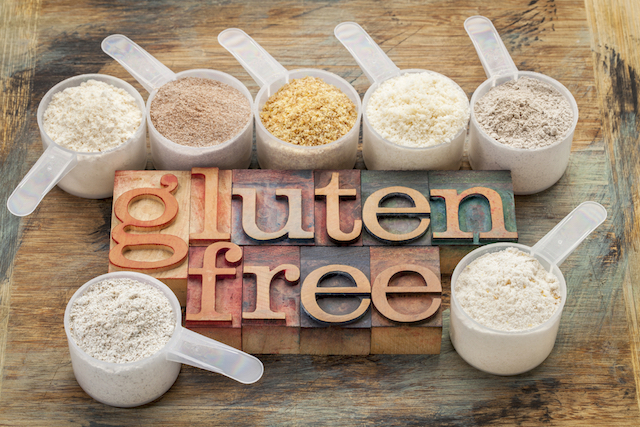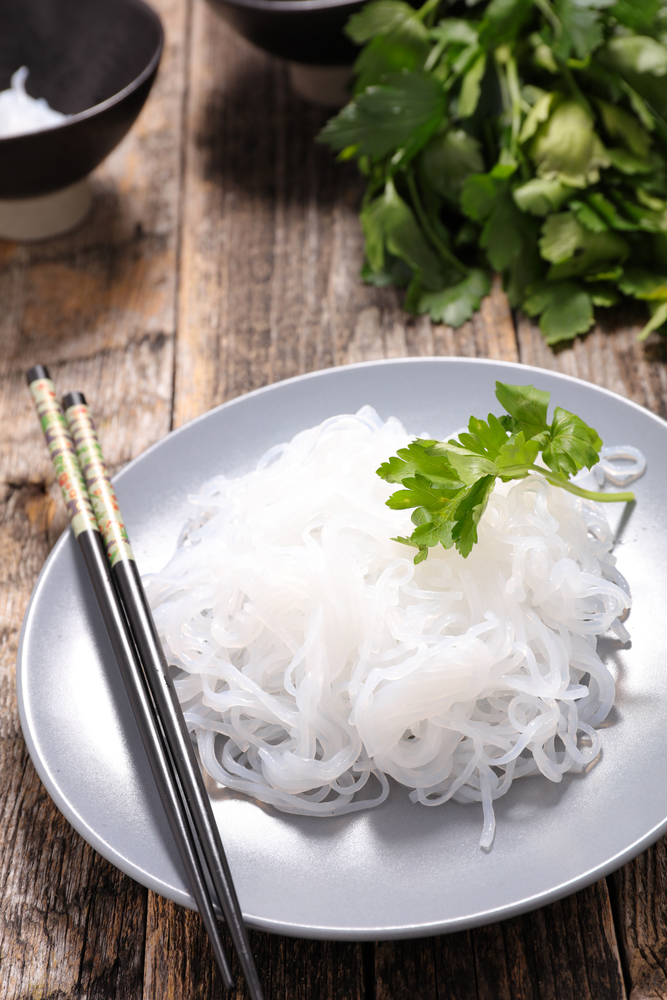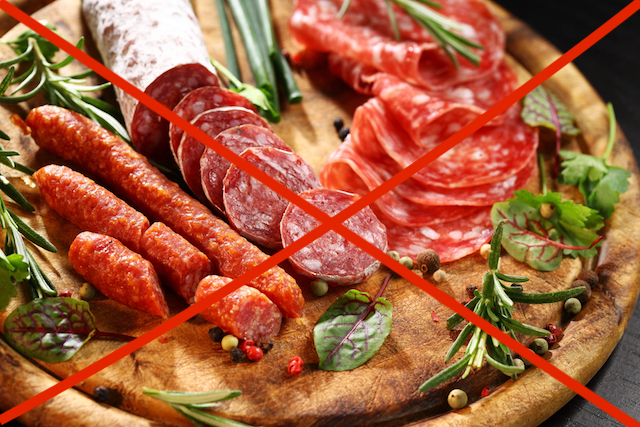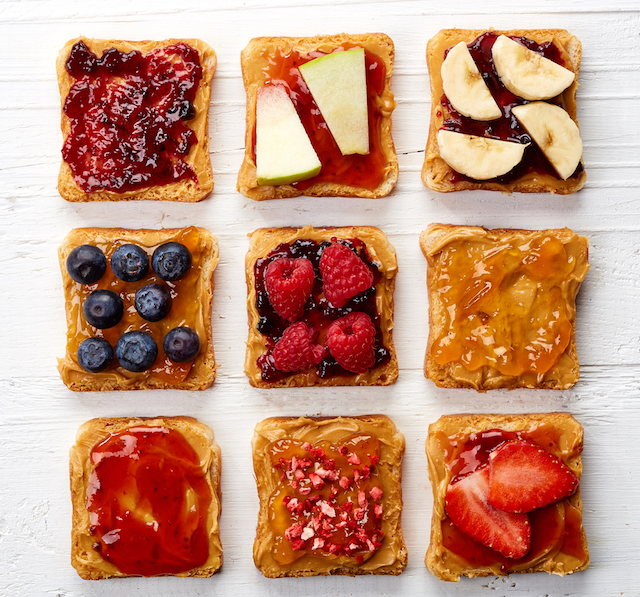Eat to beat gluten intolerance and coeliac disease (Part 1)

People with coeliac disease or dermatitis herpetiformis, or those with an intolerance to gluten have to be extra careful of what they eat. If you are just avoiding gluten for reasons of digestion (bloating, better health) or you want more energy, a completely gluten-free diet may be too strict for you.
Why gluten-free?
A gluten-free diet is the only method of treatment for children and adults with coeliac disease, a condition where gluten ‘damages’ their bowel thus preventing it from absorbing food properly. Commonly, symptoms are diarrhoea, anaemia and loss of weight; however, some individuals show no symptoms at all, which is why it’s traditionally been hard to diagnose.
Gluten – where you’ll find it
Gluten is part of a protein found in wheat, rye, oats, barley and triticale (a cereal which is a cross between wheat and rye). When mixed with water, gluten forms an elastic-like substance which expands when a dough rises. It gives the structure to bread and cakes and enables pastry and biscuits to "hold together". Without gluten, most baked goods do not rise as well and so are flatter and less aerated.
Malt is not gluten free
When a grain is allowed to germinate, it produces sugars and short starch compounds. Once it's dried, it becomes what we know as malt or malt powder. When you see the term ‘malt’ (without specifying the grain), you can assume it has been made from barley. However, it can also be produced from wheat, rye or rice. With the exception of rice malt, malt from all other grains is a source of gluten and so should be avoided.
A word of warning
A gluten-free diet is an extremely difficult diet to keep to. Many basic foods like bread, pasta, breakfast cereals and biscuits are eliminated, as are a great number of commercial and prepared foods which may contain wheaten flour or starch-based thickeners. Avoiding this group of grain-based foods can mean a diet low in fibre and possibly B vitamins as well. It can also be expensive and more processed than the regular items. Many medications and tablets may also contain wheat starch as a filler and need to be checked. Do not embark on this diet unless you have a diagnosed reason to do so.
Gluten-free food selection guide
Flours
Avoid wheat flour (white, wholemeal, self-raising), barley meal, barley flour, rye meal and rye flour, oatmeal, oat flour, triticale flour and all foods made with flour.

Substitute with Cornflour made from maize (corn starch), rice flour (ground rice), corn meal (polenta) arrowroot, besan flour (chickpea flour), soy flour or potato flour.
Grains and cereals
Avoid wheat cereals (Weet-Bix, Weeties, Vita-Brits), wheat germ, semolina, bulgur wheat, couscous, wheat bran, bran cereals (All Bran), rolled oats, oat bran, oat cereals, barley bran, barley cereals, barley quick, pearl barley, rye and rye cereals.
Substitute with rice cereals*, baby rice cereal, rice bran, corn or maize cereals*, pop corn, buckwheat, sago, tapioca, millet flakes, rolled millet.
Pasta
Avoid wheat (including durum wheat)-based pasta, macaroni, and noodles.

Substitute with rice noodles, cellophane noodles, gluten-free pasta, 100% buckwheat noodles, legume pasta.
Breads
Avoid ordinary bread and rolls, muffins, crumpets, flatbread, crispbread, rye bread, rye crispbread, breadcrumbs, seasonings and rusks.
Substitute with gluten-free bread, gluten-free bread mix, puffed rice cakes, corn thins, rice crackers, cornflake crumbs *, taco shells, pappadams (made from besan or lentil flour).
Vegetables
Avoid hydrolysed vegetable protein and textured vegetable protein
Substitute with all fresh, frozen and canned vegetables.
Fruit
Avoid fruit pie fillings*
Substitute with all fresh, frozen, canned fruit and juices
Meat, fish, chicken
Avoid sausages, salami and other smallgoods*, stuffing in poultry, meat or fish coated in breadcrumbs or batter (crumbed cutlets, schnitzel, fried fish fillets, fish fingers), self-basting or seasoned chickens and turkeys and corned beef (cooked in malt vinegar)

Substitute with all fresh cooked meat, fish and poultry, gluten-free sausages (available from sausage specialist shops) and make gravy and sauces with cornflour or arrowroot.
Dairy foods
Avoid malted milk drinks, soy beverages containing malt or malt extract, artificial cream and cheese flavouring.
Substitute with fluid or powdered milks, buttermilk, yoghurt*, flavoured milks*, all cheeses, natural and processed cheese spreads*, soy beverages, plain* and flavoured*.
Sauces
Avoid commercial sauces with flour or thickener, gravy, and soy sauce made with wheat.
Substitute with Worcestershire sauce, gluten-free or wheat-free soy sauce*, salad dressing, mayonnaise, coleslaw dressing*, chutney, sauces without flour or thickener, tomato sauce*, tomato paste, or tomato puree.
Soups
Avoid soups thickened with flour, barley, macaroni or noodles.
Substitute with clear soups, broth, soups thickened with cornflour, rice, lentils, split peas or gluten-free macaroni.
Cakes & biscuits
Avoid ordinary cakes, pies, pastries, biscuits made from flour, packet cake mixes, baby rusks, cracker biscuits, and crispbread.
Substitute with cakes and biscuits made from cornflour, gluten-free mixes, rice flour or arrowroot; gluten-free biscuits such as almond mandorlatti, biscuits or choc chip biscuits.
Desserts and sweets
Avoid desserts or puddings made with flour or bread, pies, ice cream cones and wafers, custard powder (unless suitable), chocolate Bars*, liquorice, plain and flavoured icing sugar mixtures.
Substitute with desserts made with rice, cornflour, tapioca, sago, ice cream (except those with cake or coated), meringue, pavlova, fruit-based desserts, jelly, and junket.
Jams and spreads
Avoid Vegemite, Promite, and Marmite

Substitute with jam, regular and sweetened (diet); honey, golden syrup, maple syrup, rice syrup, peanut butter, lemon butter, cheese spread* and meat spread*.
Sauces and cooking aids
Avoid mustard and curry powders, malt vinegar, soy sauce (with wheat), gravies and meat extracts (with wheaten starch).
Substitute with pepper, salt spices, herbs, vinegar*, gelatine, flavouring essences*, bakers’ yeast, baking powder, bicarbonate of soda, cream of tartar, citric acid.
Alcohol
Avoid most beers * and malt whisky.
Substitute with wine, sherry, rum, port, whisky, scotch, gin
*Check ingredients to determine if it is really gluten free - may contain malt or wheat thickener.
Eat to beat gluten intolerance and coeliac disease (Part 2) will provide a gluten-free meal plan.



